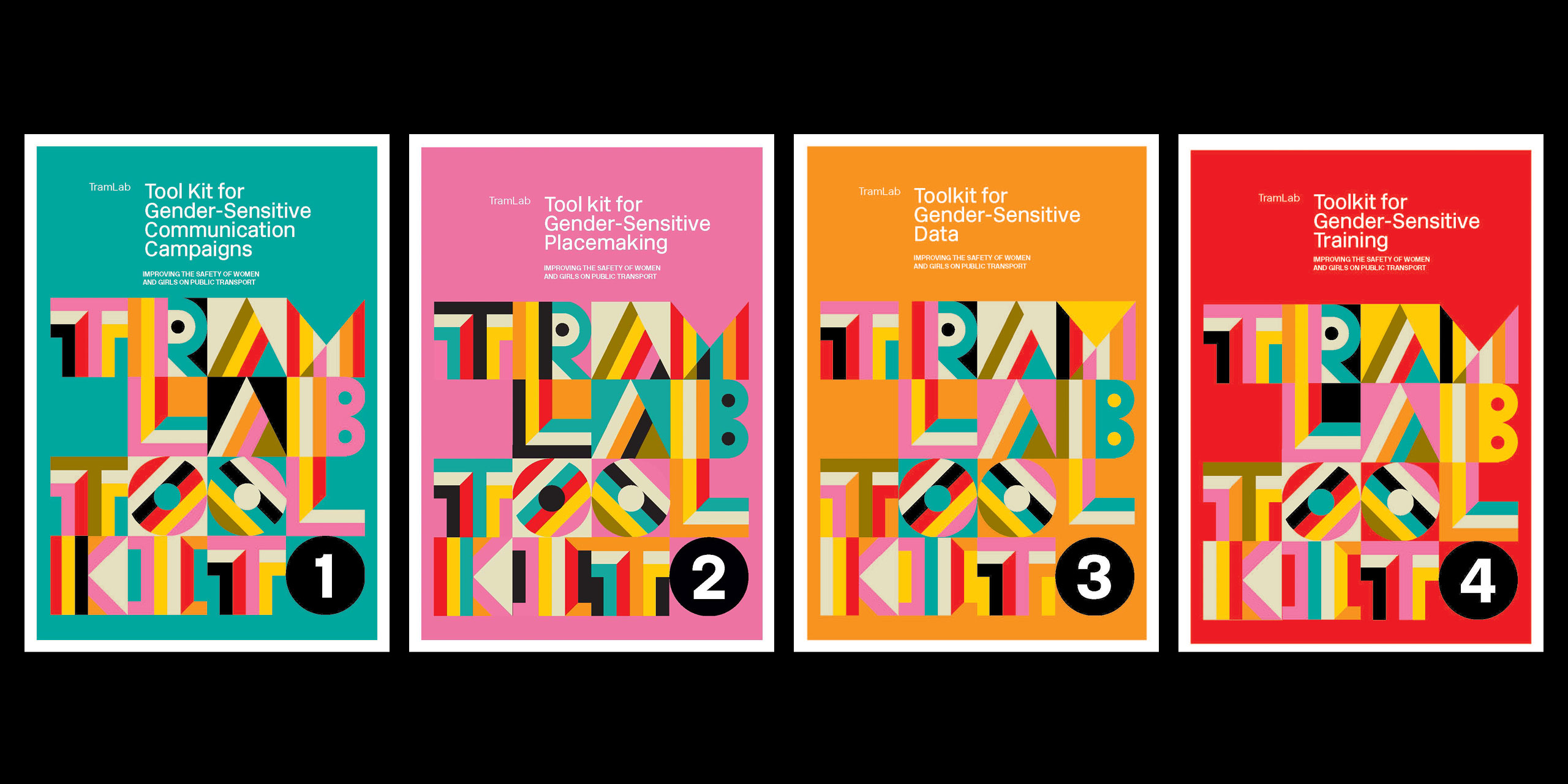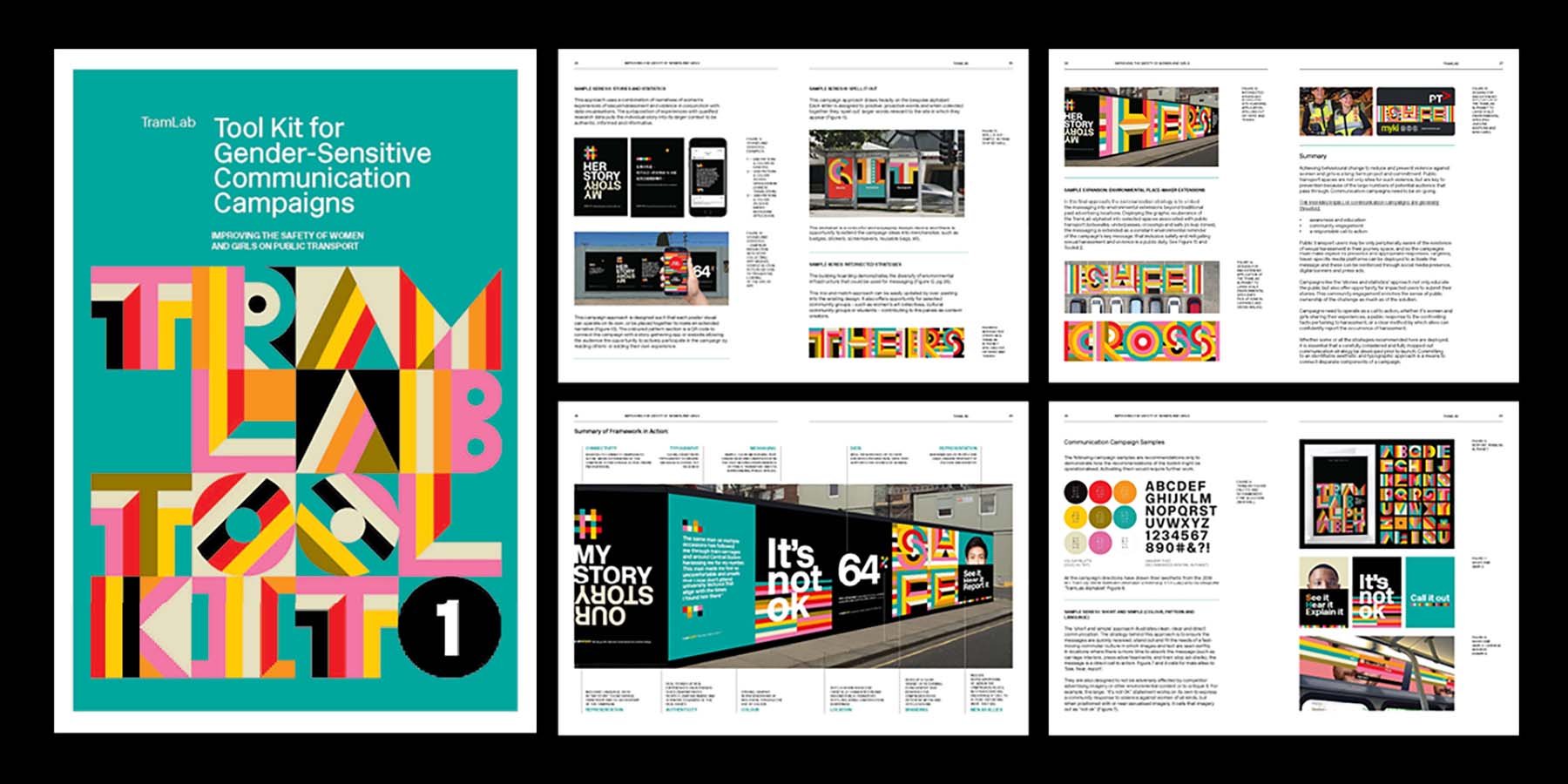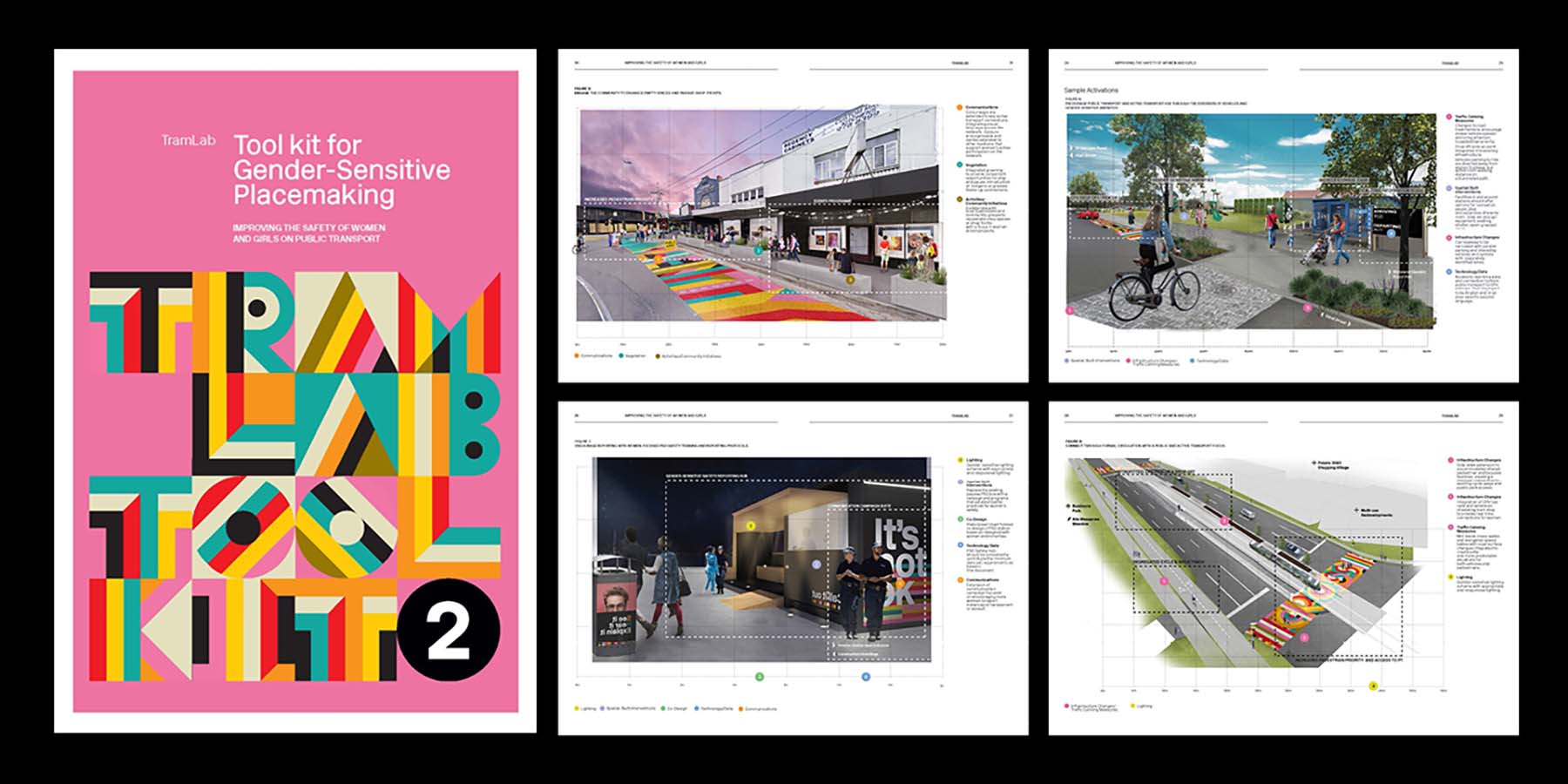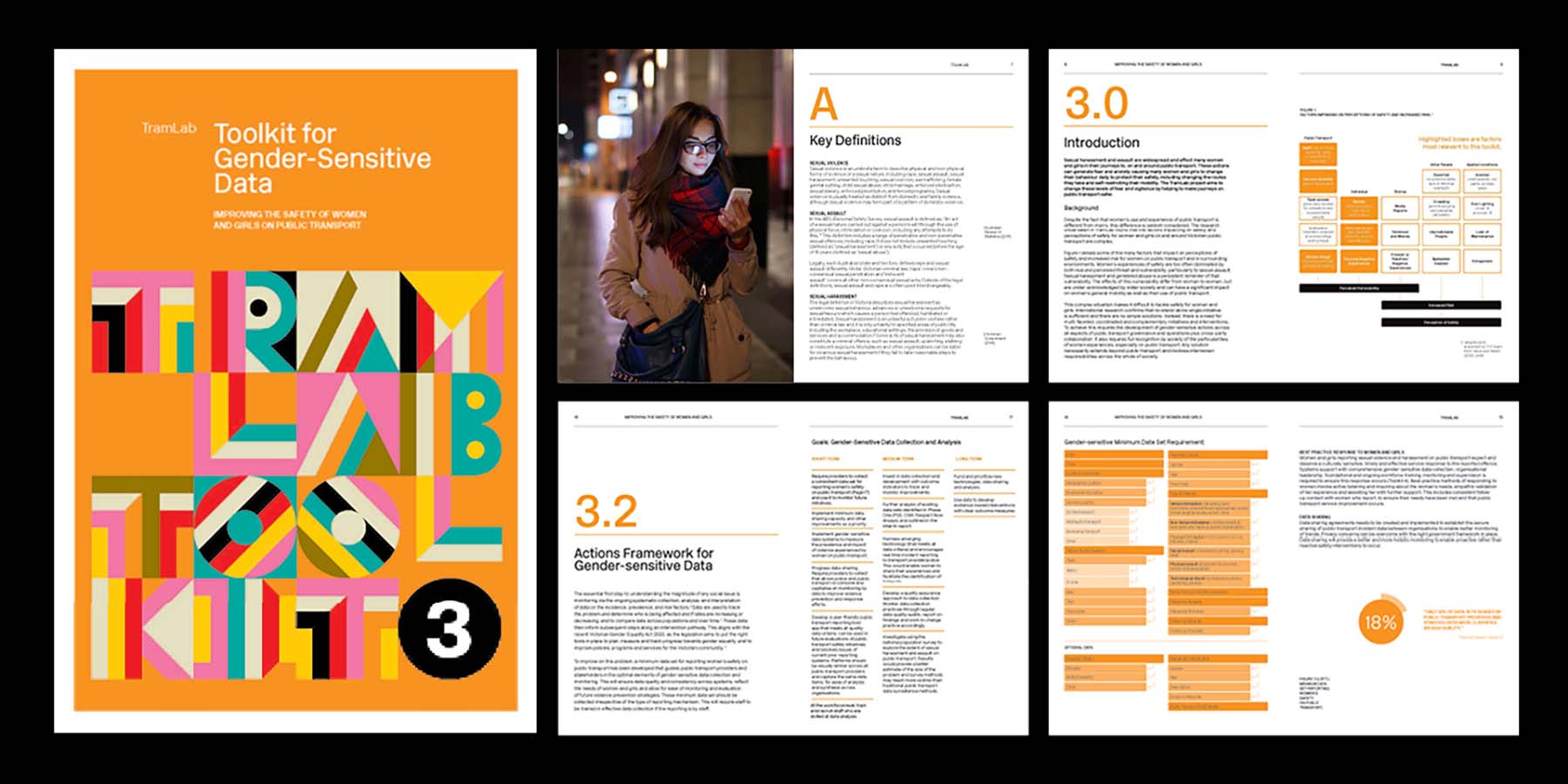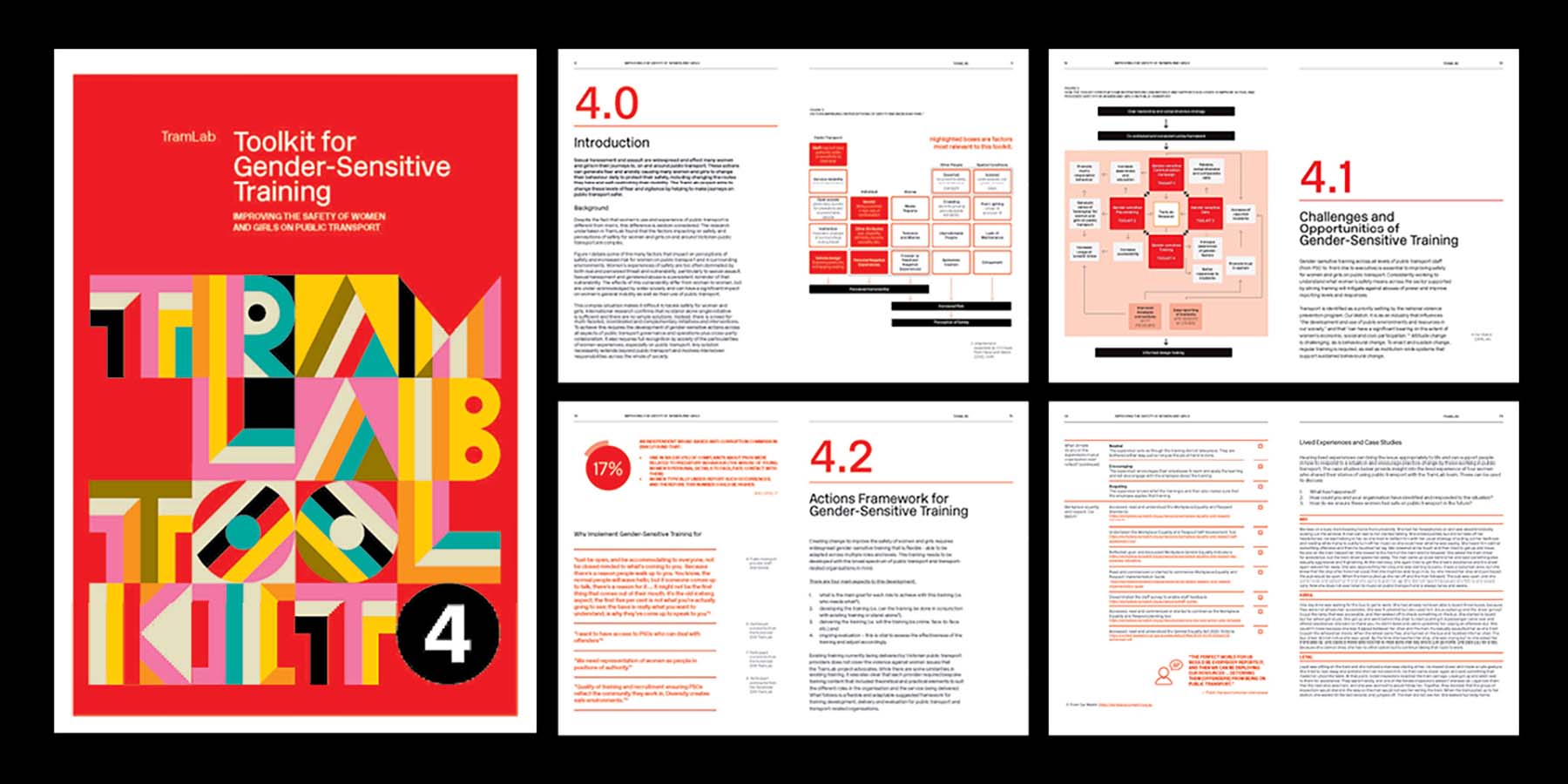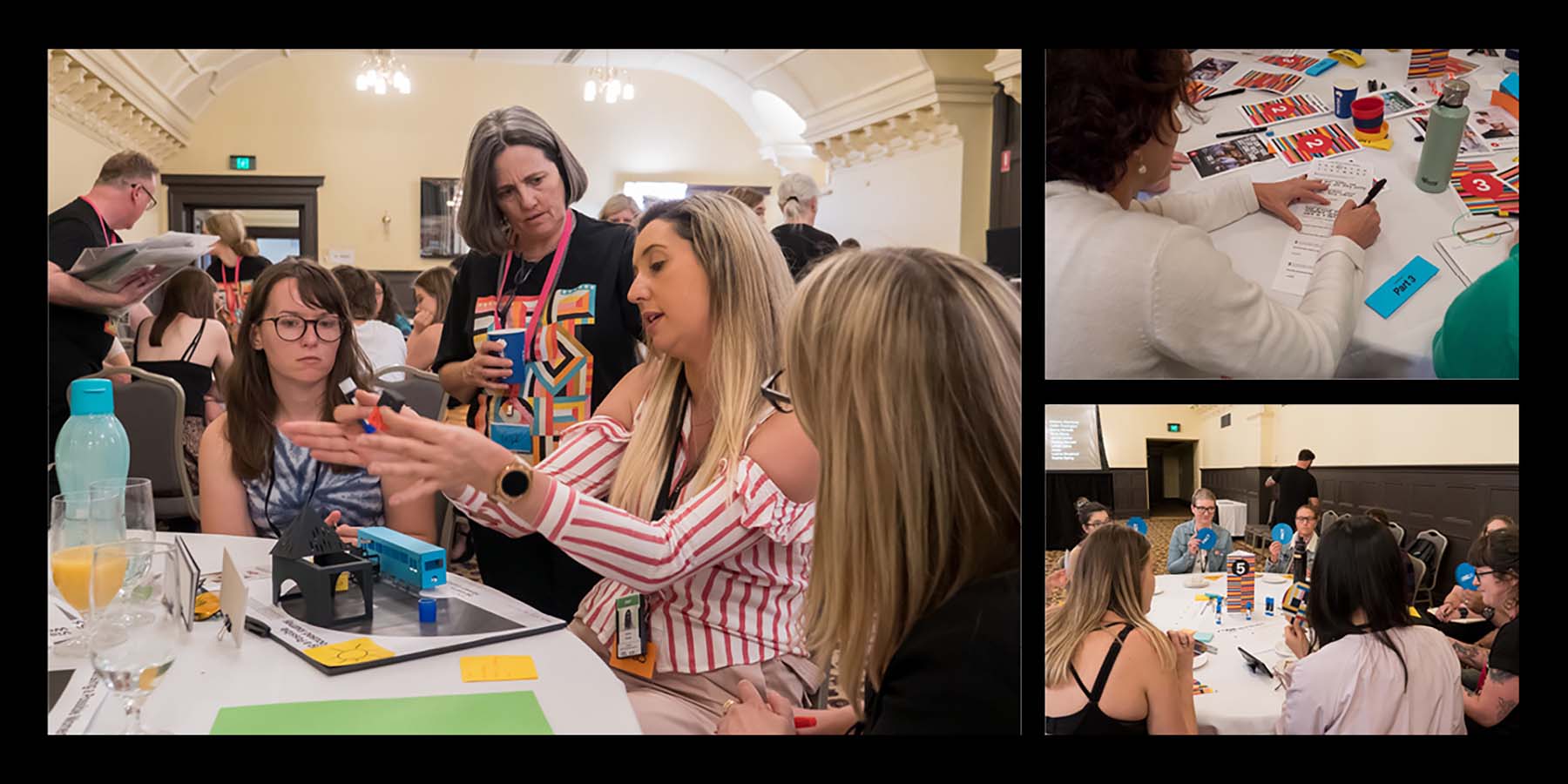Co-design and speculative research were the main design processes undertaken for the TramLab Toolkits. The XYX Lab created a special set of conditions for productive co-design as an ‘equalising practice’ that disrupted dominant power structures between the ‘expert’ and women. This process encouraged experts to step away from their ingrained ways of thinking and interacting, allowing them to approach situations and strategies from different perspectives. By fostering creative thinking informed by the intersection of academic knowledge, business contingencies and know-how with the lived experiences of women and girls, the co-design process was able to address complex problems of safety for women on public transport.
Participants included a wide range of women from the Victorian community as well as stakeholders from public transport and urban planning professions. Together a series of speculative solutions, policy recommendations and interventions were produced. The topics of inquiry included: Communication Campaigns, Data Gathering, Women-Focused Transport, Safety Audits, Protective Services Officers (PSOs), and Surveillance Technologies.
The speculative design interventions were then further developed in consultation with Darebin City Council to ensure the scholarly research and co-design strategies would translate into applied design strategies. This process allowed the TramLab research team to understand how various stakeholders would deploy the toolkits to address gendered experiences in cities. Designers, planners and policy makers offered feedback about how to communicate gender issues in cities and the ways that the toolkits could best prioritise inclusive and accessible cities for women and girls in Victoria. They assisted with the inclusion of the LGBTQI+ community, Indigenous peoples, ethnic communities, people with disabilities, the elderly, and children.

